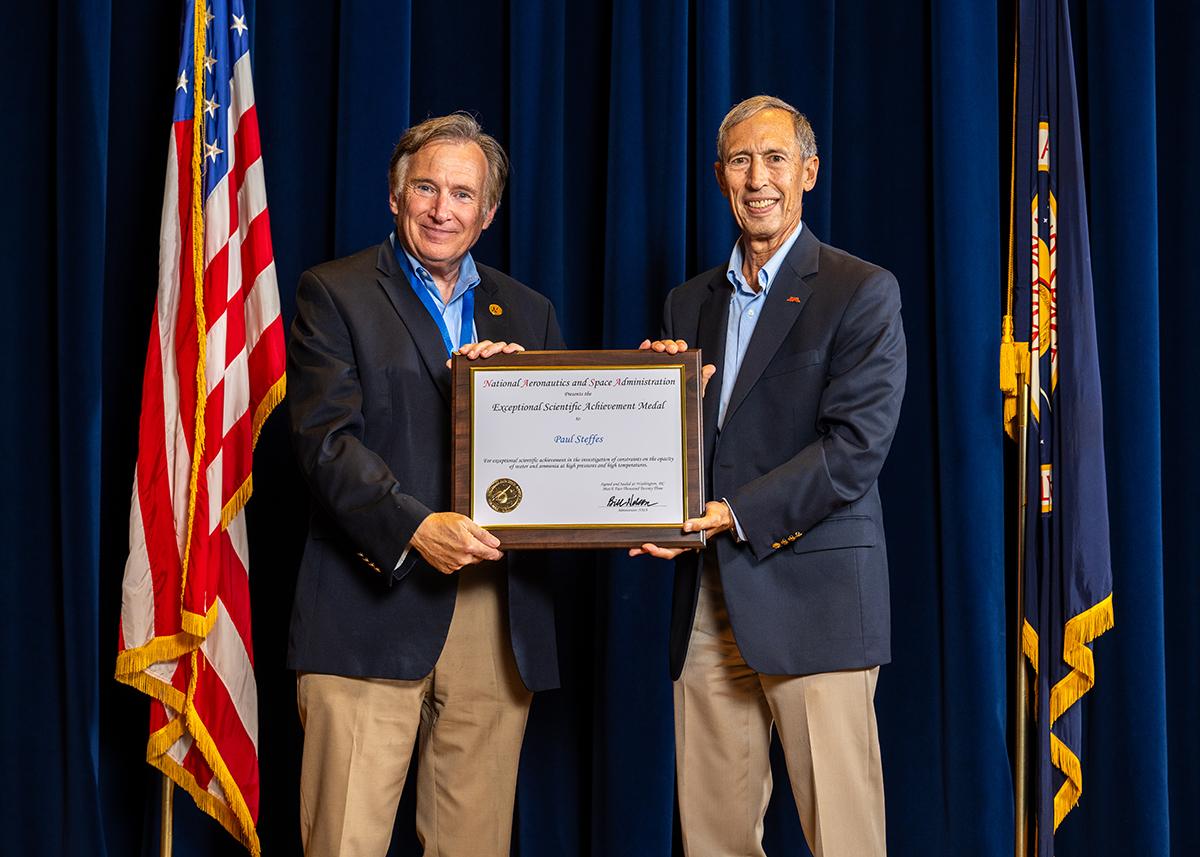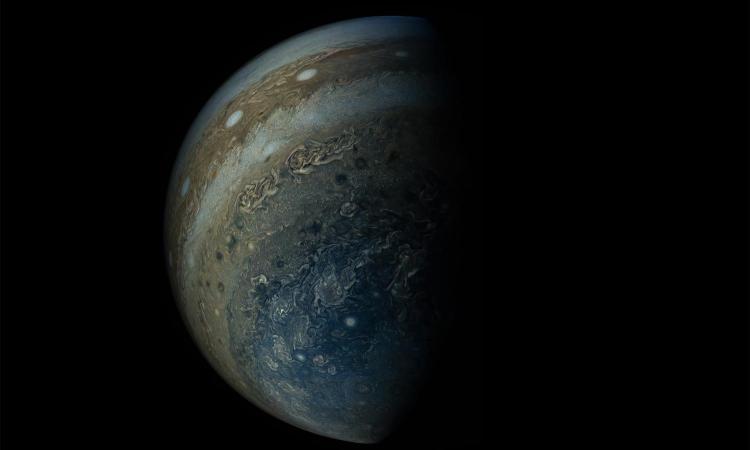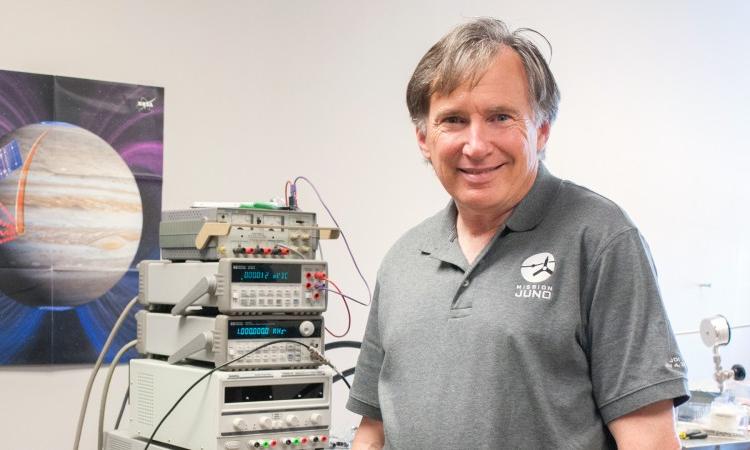
Steffes (left) receiving the NASA Exceptional Scientific Achievement Medal from JPL's Deputy Director, Lt. General Larry James (USAF-retired) on August 30.
(text and background only visible when logged in)
Paul Steffes has been honored with an Exceptional Scientific Achievement Medal from the National Aeronautics and Space Administration (NASA) for his “exceptional scientific achievement in the investigation of constraints on the opacity of water and ammonia at high pressures and high temperatures.”
The prestigious NASA medal is bestowed upon individuals who have made outstanding contributions to furthering NASA's mission, with only three being awarded in 2023. He received the award on August 30, 2023 at NASA's Jet Propulsion Laboratory (JPL) in Pasadena, Cali.
Steffes, a professor emeritus in the Georgia Tech School of Electrical and Computer Engineering, is a renowned expert in the laboratory measurement of microwave and millimeter-wave properties in simulated planetary atmospheres.
He has been involved with numerous NASA missions, including Pioneer-Venus, Magellan, the Advanced Communications Technology Satellite (ACTS), the High Resolution Microwave Survey (HRMS), and Juno (Jupiter Polar Orbiter).
Georgia Tech's Paul Steffes decribes Juno's mission.
(text and background only visible when logged in)
His work on the Juno Science Team, in particular, led to the Exceptional Scientific Achievement Medal. In 2011, NASA's Juno spacecraft embarked on a 5-year journey to Jupiter, the solar system's largest planet, with the mission to probe beneath the planet's dense clouds and answer questions about the origin and evolution of Jupiter, the solar system, and giant planets in general across the cosmos.
To sense what’s below Jupiter’s clouds, Steffes and his peers utilized Juno’s microwave radiometer (MWR) instrument. It measured radio waves from Jupiter’s deep atmosphere, providing a first-ever glimpse of what the planet is made of. With the MWR instrument, the team discovered that Jupiter’s belt and zone bands (the stripes you see when you look at Jupiter) extend far deeper beneath the planet’s clouds than previously thought.
Read more about Paul Steffes
NASA's Juno Mission Reveals Jupiter’s First Surprises
The Juno Science Team, which includes Georgia Tech Professor Paul Steffes, has published its first observations of Jupiter.
ECE Faculty Highlight
Paul Steffes talks about his Georgia Tech career, NASA, and what's next in this fascinating faculty Q&A.
(text and background only visible when logged in)

